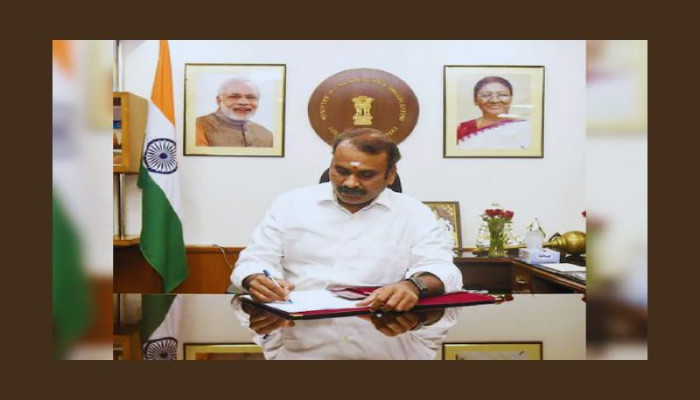‘India’s media ecosystem vibrant’: Government rejects foreign validation
- In Reports
- 08:31 PM, Apr 02, 2025
- Myind Staff
The Indian government has reaffirmed its stance that the country’s media ecosystem is vibrant and does not require validation from foreign organisations. Minister of State for Information and Broadcasting L Murugan made this statement in a written response to Congress MP K Sudhakaran in the Lok Sabha on Wednesday. The MP had sought clarification on India’s ranking in the 2024 Global Press Freedom Index.
Murugan emphasised that India's media sector is robust and functions independently, dismissing concerns raised by foreign assessments. “India has a vibrant press and media ecosystem, which does not need validation from foreign organisations,” he asserted.
India’s Ranking in the Global Press Freedom Index
In a report published last year, global media watchdog Reporters Without Borders (RSF) ranked India 159th out of 180 countries, evaluating journalists’ ability to work freely and independently. India was placed below Turkey (158th), Pakistan (152nd), and Sri Lanka (150th), drawing criticism from some quarters.
RSF, which has consultative status with the United Nations, UNESCO, the Council of Europe, and the International Organisation of the Francophonie, issues these rankings based on its assessment of press freedom worldwide. However, the Indian government has consistently rejected the need for external validation, asserting that its media environment remains free and diverse.
Government’s Measures to Safeguard Press Freedom
Addressing concerns regarding press freedom and journalists' rights, Murugan highlighted that India’s Constitution guarantees freedom of speech and expression under Article 19. He underscored that the country’s strong judicial framework ensures the enforcement of constitutional provisions, safeguarding journalists and media outlets.
Additionally, Murugan pointed to the Press Council of India (PCI), an autonomous statutory body established under the Press Council Act of 1978, which is chaired by a retired Supreme Court judge. The PCI adjudicates complaints from journalists regarding restrictions on press freedom, physical assaults, and other threats.
Under Section 13 of the Press Council Act, the PCI also has the authority to take suo motu cognisance of issues concerning press freedom and journalistic standards.
Regulation of Electronic Media
The minister further stated that electronic media in India operate under a self-regulatory framework. The Cable Television Networks (Regulation) Act, 1995, ensures that press freedom in the television sector is maintained while adhering to regulations.
The government’s response underscores its confidence in India's media ecosystem and judicial safeguards. While global watchdogs continue to assess press freedom worldwide, the Indian administration maintains that the country’s press functions independently and does not require external validation. The role of statutory bodies like the PCI and judicial oversight remains central to upholding press freedom in India.







Comments